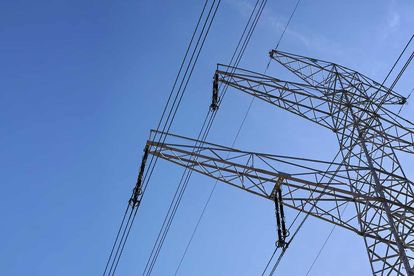In a landmark decision by the Pretoria High Court on Thursday, the South African government and Eskom, the national power utility, have been denied leave to appeal against a ruling that mandates uninterrupted electricity supply to essential services such as schools, hospitals, and police stations. This ruling follows the initial decision made on December 1, 2023, which highlighted the urgent need to protect these critical public institutions from the debilitating effects of loadshedding.
The application to safeguard these facilities from power interruptions was brought forward by several political parties and trade unions, including ActionSA, the UDM, IFP, and others, who argued for the necessity of consistent power supply to ensure the safety and well-being of the public. The court’s denial of the appeal effectively upholds the December ruling, requiring the Minister of Electricity, Kgosientsho Ramokgopa, along with Eskom and other governmental bodies, to ensure a reliable electricity supply for these critical institutions.
The court’s decision was based on numerous factors that depict a troubling picture of South Africa’s energy situation. These include the government’s failure since the late 1990s to open up the energy sector to competition and to implement the Independent Power Producer procurement program timely. Additionally, the ruling highlighted the mismanagement at Eskom, including the delayed decisions and flawed implementation of new power stations like Medupi and Kusile, the overutilization of existing power stations without adequate maintenance, and insufficient financial oversight that has led to escalated operational costs and vulnerability to corruption.
The ruling also pointed to the extensive corruption and “state capture” that have exacerbated the energy crisis, manifesting in persistent load-shedding that disrupts daily life and operations across the nation. The court emphasized that these ongoing issues represent a failure by state organs to protect and promote the rights enshrined in the Bill of Rights, which includes the right to basic services like electricity.
Following the court’s recent decision, ActionSA expressed satisfaction, noting that the ruling should bring “humanitarian relief” and be implemented immediately to ensure that essential services like public schools, hospitals, and police stations are exempt from load-shedding post-elections. This move is expected to stabilize the functioning of these vital institutions regardless of the broader challenges within the national power grid.
The implications of this ruling are significant, as it not only underscores the critical state of South Africa’s power infrastructure but also sets a legal precedent for prioritizing the energy needs of essential services over other demands. This decision comes at a crucial time when Eskom is struggling to maintain power supply amidst aging infrastructure, maintenance backlogs, and financial constraints.
Industry experts have long criticized the slow pace of reform in South Africa’s energy sector, particularly the delays in integrating more independent power producers and renewable energy sources into the national grid. The court’s ruling now adds judicial pressure on the government and Eskom to expedite these reforms and to enhance the resilience and capacity of the nation’s power infrastructure.
As part of the broader response to this crisis, there have been calls for a more aggressive approach towards refurbishing existing power plants, accelerating renewable energy projects, and strengthening the regulatory and financial frameworks governing the energy sector. These steps are seen as essential to not only meet the current demands for reliable electricity but also to lay the foundation for sustainable economic growth and development in South Africa.
Furthermore, the ruling highlights the need for greater accountability and transparency in how Eskom and the government manage the energy sector. Stakeholders are advocating for more stringent oversight mechanisms to ensure that future investments and reforms directly address the underlying issues of inefficiency, corruption, and mismanagement that have plagued the sector for decades.
The Pretoria High Court’s decision to deny the appeal against safeguarding essential services from load-shedding is a significant development in South Africa’s ongoing energy crisis. It mandates immediate governmental action to secure a stable power supply for critical public institutions, thereby reinforcing the legal and moral obligation of the state to ensure the provision of essential services to its citizens. This ruling not only protects vulnerable sectors but also presses for systemic changes to rectify the longstanding issues within the national energy framework.
Source: ESI Africa



